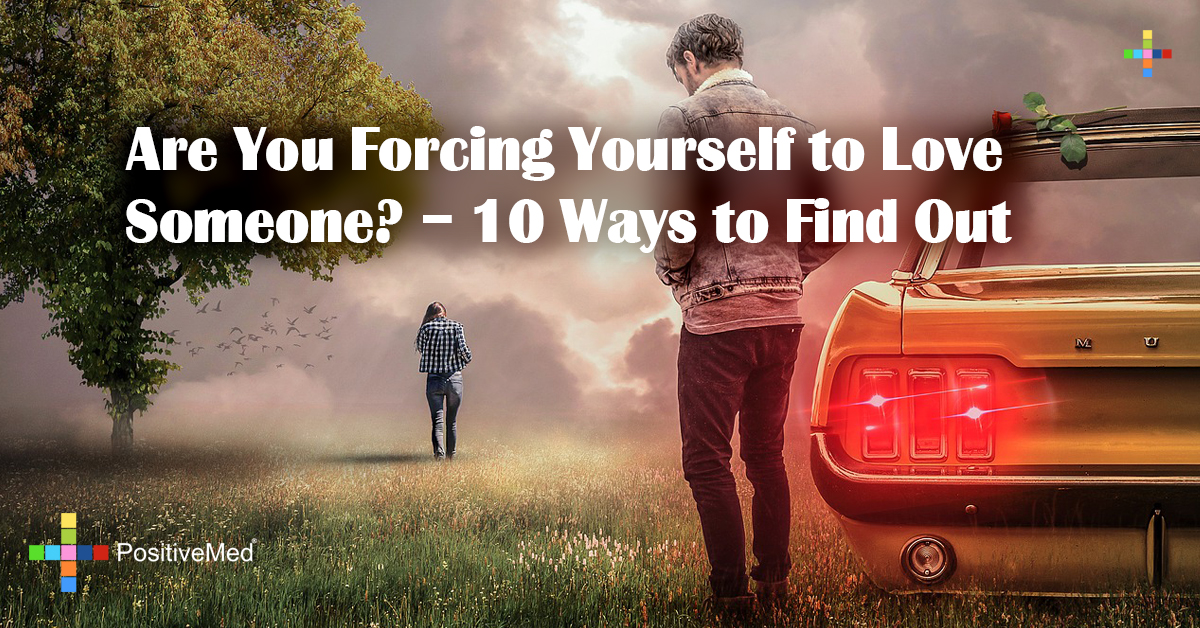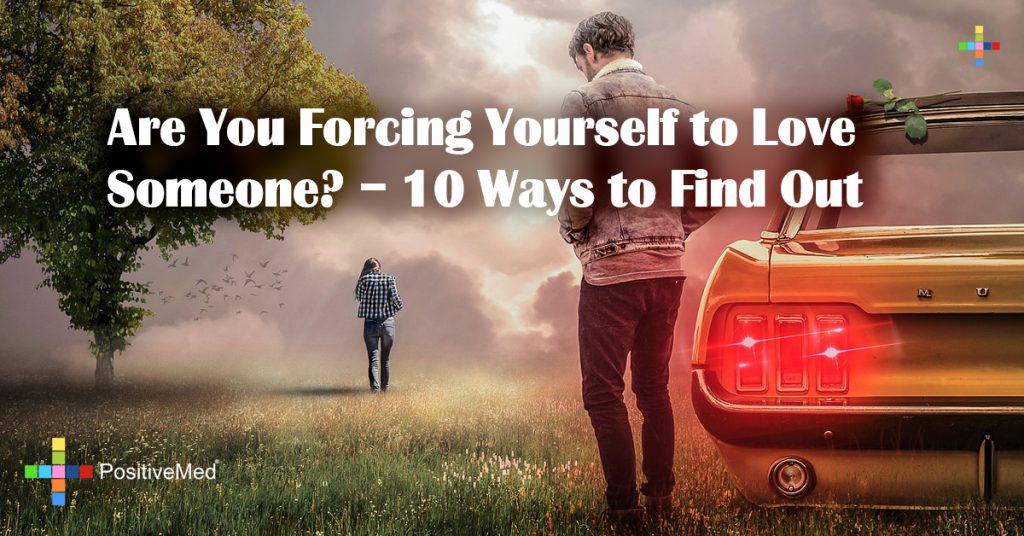
Are You Forcing Yourself to Love Someone? – 10 Ways to Find Out
[nextpage title=”…”]You look across the room, that guy or girl catches your eye. You ask yourself, “Hmm, are they cute? I need a closer look.” This is your first red flag. If you have to ask if you’re enjoying a glass of wine, a kiss, a concert or a meal, the truth is that you already know the answer.
If you have to ask, the answer is no. But if you’re like me, sometimes you go ahead anyways. I often try to convince myself that the girl I’m looking at is cute, but she’s “natural,” or “probably cleans up nicely.” The truth is that if I’m not struck by her beauty immediately, the impact will only wane when I wake up next to her two years from now. This is just on the level of initial attraction. But what attracts us in the early stages can repel us after a the honeymoon wears off.
Each of us does, in effect, strike a series of deals or compromises between the wants and longings of the inner self, and an outer environment that offers certain possibilities and sets certain limitations.-Maggie Scarf
When I read Maggie Scarf’s book, Int!mate Partners: Patterns in Love and Marriage, I learned that the dynamics of attraction are based on our genetics and our family history. My #1 takeaway from that book was that if you are totally head over heals in love with someone as soon as you meet them, or very soon after beginning a relationship, then it’s time to look at your family tree to see just what’s really behind this powerful emotion. Chances are, what you love now, you’ll hate later.
- That fun person turns out to be totally irresponsible.
- The super hot guy can’t stay faithful.
- He or she who was so calm and collected now appears to you as repressed and incommunicative.
- The young lady who blew your mind at how smart she was just can’t seem to share her feelings with you.
The characteristics of attraction thus become the reasons for repulsion, if we don’t know about our own internal dynamics going in. To figure all of that out, I recommend that you consult with a therapist who is familiar with Family Systems Theory:
RELATED ARTICLE: 5 Red Flags That Mr. ‘Nice Guy’ Will Break Your Heart
“Family Systems theory, introduced by Dr. Murray Bowen, suggests that individuals cannot be understood in isolation from one another, but rather as a part of their family, as the family is an emotional unit.
Until you have a chance to sort some of that out, here are a few warning signs to consider. This is friendly advice, not a professional consultation. Please see a licensed family therapist to help you understand your own situation.
1.If you’re in a relationship, and are constantly trying to justify it to your friends and family, you’re in the wrong relationship.
2.If you were originally attracted to her because she was wild and crazy, but now can’t stand the fact that she comes home late and experiences mood swings, you’re forcing yourself to love her. You know better. Get out while you can.
3.If his boyish charm has turned into immature laziness three years into the relationship, perhaps you both need to grow up and move on.
[/nextpage] [nextpage title=”…”]
4.If you have been verbally or emotionally abused by your partner, and they are not actively working on it in counseling, you need to reevaluate why you’re there. Note, Craig Malkin, author of Rethinking Narcissism said in a recent article that, “men tend to be more aggressive than women,” but not always. Read
If you’ve been physically abused by your partner, please see a counselor immediately.
5.Does your partner make you feel alive? If not, better find a way to breathe life into the situation. Soon.
6.If you talk to your partner about your hopes and dreams, are they supportive? Do they give you good ideas to help you move forward? If not, find someone who does.
7.When you and your lover meet up after work, do they want to hear about your day, or do they only want to talk about theirs?
8.Has your partner cheated on you? If yes, why are you still there? Seriously.
9.Did your parents divorce when you were young?
10.How many relationships in your family tree were long term, healthy ones?
Be honest with yourself and try to answer these questions, and find out if this is “the one.”
[/nextpage]
Codependent No More: How to Stop Controlling Others and Start Caring for Yourself Melodie Beattie
Stop Walking on Eggshells: Taking Your Life Back When Someone You Care About Has Borderline Personality Disorder Paul T. Mason, MS, Randi Kreger








